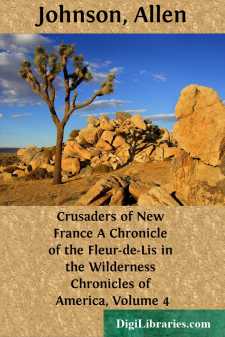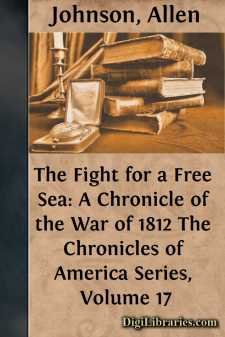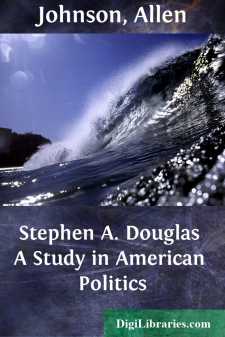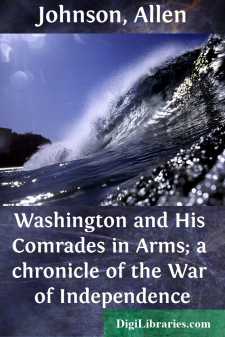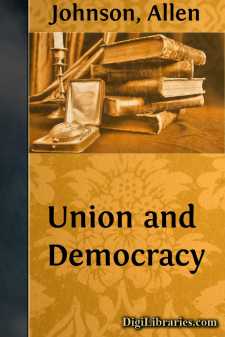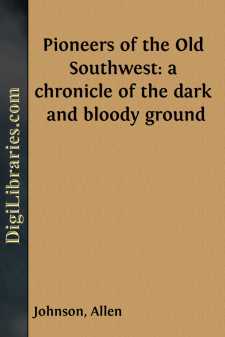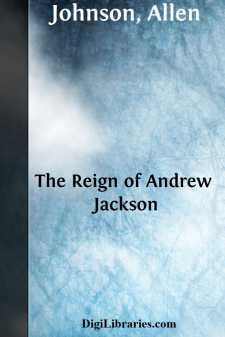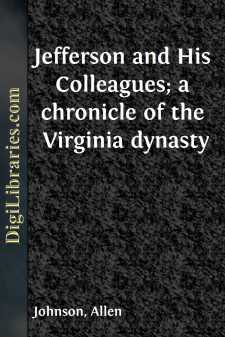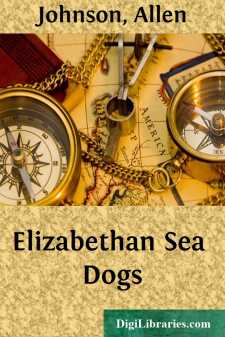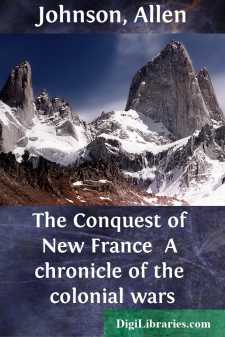Categories
- Antiques & Collectibles 13
- Architecture 36
- Art 48
- Bibles 22
- Biography & Autobiography 813
- Body, Mind & Spirit 142
- Business & Economics 28
- Children's Books 16
- Children's Fiction 13
- Computers 4
- Cooking 94
- Crafts & Hobbies 4
- Drama 346
- Education 46
- Family & Relationships 57
- Fiction 11829
- Games 19
- Gardening 17
- Health & Fitness 34
- History 1377
- House & Home 1
- Humor 147
- Juvenile Fiction 1873
- Juvenile Nonfiction 202
- Language Arts & Disciplines 88
- Law 16
- Literary Collections 686
- Literary Criticism 179
- Mathematics 13
- Medical 41
- Music 40
- Nature 179
- Non-Classifiable 1768
- Performing Arts 7
- Periodicals 1453
- Philosophy 64
- Photography 2
- Poetry 896
- Political Science 203
- Psychology 42
- Reference 154
- Religion 513
- Science 126
- Self-Help 84
- Social Science 81
- Sports & Recreation 34
- Study Aids 3
- Technology & Engineering 59
- Transportation 23
- Travel 463
- True Crime 29
Allen Johnson
Allen Johnson (1870-1931) was a prominent American historian and writer, renowned for his comprehensive biographical works and editorial contributions. He served as a professor of history at Yale University, where he significantly influenced historical scholarship. Johnson also edited the *Dictionary of American Biography*, a pivotal resource for researchers and historians.
Author's Books:
Sort by:
by:
Allen Johnson
CHAPTER I FRANCE OF THE BOURBONS France, when she undertook the creation of a Bourbon empire beyond the seas, was the first nation of Europe. Her population was larger than that of Spain, and three times that of England. Her army in the days of Louis Quatorze, numbering nearly a half-million in all ranks, was larger than that of Rome at the height of the imperial power. No nation since the fall of...
more...
by:
Allen Johnson
"ON TO CANADA!" The American people of today, weighed in the balances of the greatest armed conflict of all time and found not wanting, can afford to survey, in a spirit of candid scrutiny and without reviving an ancient grudge, that turbulent episode in the welding of their nation which is called the War of 1812. In spite of defeats and disappointments this war was, in the large, enduring...
more...
by:
Allen Johnson
CHAPTER I The dramatic moments in the colonizing of coastal New England have passed into song, story, and sober chronicle; but the farther migration of the English people, from tide-water to interior, has been too prosaic a theme for poets and too diverse a movement for historians. Yet when all the factors in our national history shall be given their full value, none will seem more potent than the...
more...
by:
Allen Johnson
CHAPTER I. THE COMMANDER-IN-CHIEF Moving among the members of the second Continental Congress, which met at Philadelphia in May, 1775, was one, and but one, military figure. George Washington alone attended the sittings in uniform. This colonel from Virginia, now in his forty-fourth year, was a great landholder, an owner of slaves, an Anglican churchman, an aristocrat, everything that stands in...
more...
by:
Allen Johnson
CHAPTER I THE ORDEAL OF THE CONFEDERATION It was characteristic of the people of the United States that once assured of their political independence they should face their economic future with buoyant expectations. As colonizers of a new world they were confident in their own strength. When once the shackles of the British mercantile system were shaken off, they did not doubt their ability to compete...
more...
by:
Allen Johnson
Chapter I. The Tread Of Pioneers The Ulster Presbyterians, or "Scotch-Irish," to whom history has ascribed the dominant role among the pioneer folk of the Old Southwest, began their migrations to America in the latter years of the seventeenth century. It is not known with certainty precisely when or where the first immigrants of their race arrived in this country, but soon after 1680 they were...
more...
by:
Allen Johnson
CHAPTER I JACKSON THE FRONTIERSMAN Among the thousands of stout-hearted British subjects who decided to try their fortune in the Western World after the signing of the Peace of Paris in 1763 was one Andrew Jackson, a Scotch-Irish Presbyterian of the tenant class, sprung from a family long resident in or near the quaint town of Carrickfergus, on the northern coast of Ireland, close by the newer and more...
more...
by:
Allen Johnson
CHAPTER I. PRESIDENT JEFFERSON'S COURT The rumble of President John Adams's coach had hardly died away in the distance on the morning of March 4,1801, when Mr. Thomas Jefferson entered the breakfast room of Conrad's boarding house on Capitol Hill, where he had been living in bachelor's quarters during his Vice-Presidency. He took his usual seat at the lower end of the table among...
more...
by:
Allen Johnson
CHAPTER I ENGLAND'S FIRST LOOK In the early spring of 1476 the Italian Giovanni Caboto, who, like Christopher Columbus, was a seafaring citizen of Genoa, transferred his allegiance to Venice. The Roman Empire had fallen a thousand years before. Rome now held temporal sway only over the States of the Church, which were weak in armed force, even when compared with the small republics, dukedoms, and...
more...
by:
Allen Johnson
CHAPTER I. The Conflict Opens: Frontenac And Phips Many centuries of European history had been marked by war almost ceaseless between France and England when these two states first confronted each other in America. The conflict for the New World was but the continuation of an age-long antagonism in the Old, intensified now by the savagery of the wilderness and by new dreams of empire. There was another...
more...


